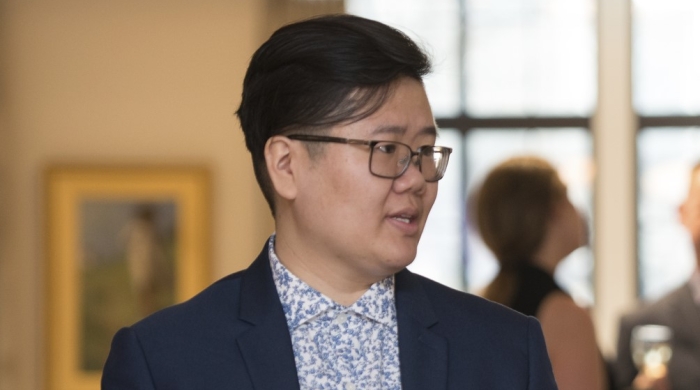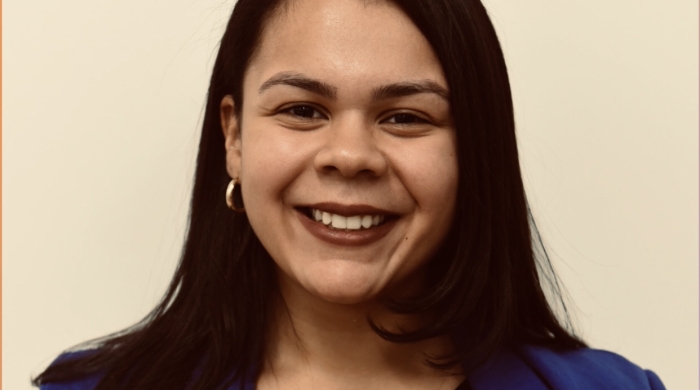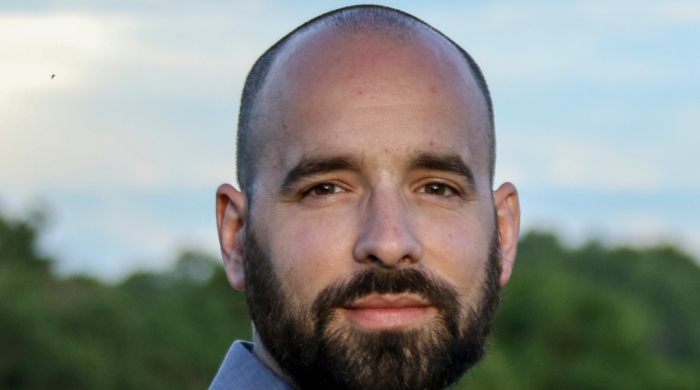Cassius Adair, visiting assistant professor in the Department of Media, Culture, and Communication, is an independent audio producer and researcher, whose writing has appeared in American Quarterly, American Literature, The Rumpus, Semiotic Review, and Transgender Studies Quarterly. He is the lead producer of the podcast Transcripts, a production of the Tretter Transgender Oral History Project. He has also worked as a story consultant and script editor for major media outlets, including StoryCorps’ Peabody-nominated Stonewall Outloud podcast seriesWe spoke to him about his scholarship on queer and transgender lives.
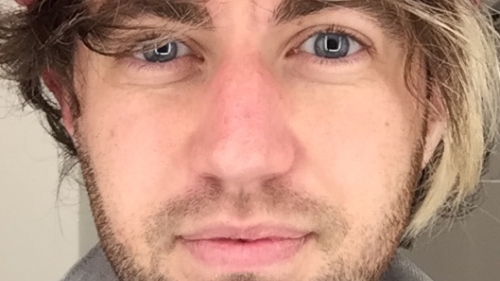
Can you tell us about Transcripts?
Transcripts is a podcast project that takes oral histories from transgender activists out of the archives into the public sphere. Grounded in the work of the Tretter Transgender Oral History Project, curator Rachel Mattson, and oral historians Andrea Jenkins and Myrl Beam, the show tackles hot-button issues such as trans media representation and the over-policing of transgender people. The show also foregrounds the voices of trans people of color as guests and uses a community review process to ensure that trans folks of many different backgrounds are represented in the stories. Right now, we're in the midst of applying for funding to keep the show rolling. We're also using our feed as a discovery tool for new and exciting trans audio, especially audio that features or is made by trans people of color, rural trans people, and incarcerated trans people. The show is an important intervention into a media and journalistic landscape that imagines trans people as objects of political debate, but not as thinkers, theorists, and change-makers in their own right. I'm just so excited to have had the chance to connect with people like féi hernandez, Ariana Martinez, Jupiter Gray, Lynn Casper, and countless other talented queer and trans creative people while making the show.
Language around gender and sexuality has evolved over the last five decades. Mediating between past and present ways of understanding queer and trans life, language, and identity is a rewarding puzzle to solve."
What surprised you the most in your oral history research on Stonewall?
This project wasn't my original oral history research; I was reading and editing scripts for a StoryCorps' podcast season that was produced to mark the fiftieth anniversary of the Stonewall uprisings. StoryCorps had collected narratives from LGBTQ people whose life experiences encapsulate something profound about queer and trans life since 1969, and my job was to help the (talented and smart!) series producers present these stories in a way that would be respectful and responsive to community members today. This type of work can be challenging because it's important to respect the way people describe their own experiences or identities, but a lot of language around gender and sexuality has evolved over the last five decades. Mediating between past and present ways of understanding queer and trans life, language, and identity is a rewarding puzzle to solve. Especially when doing so for a program with as broad an audience as StoryCorps. On Transcripts, which is explicitly framed as a trans show, we don't even bother defining "transgender," in part because we wanted the show to feel like "insider" knowledge to the trans listeners. But on StoryCorps, the team had to strike the balance between bringing new people into the conversation without alienating queer and trans audiences.
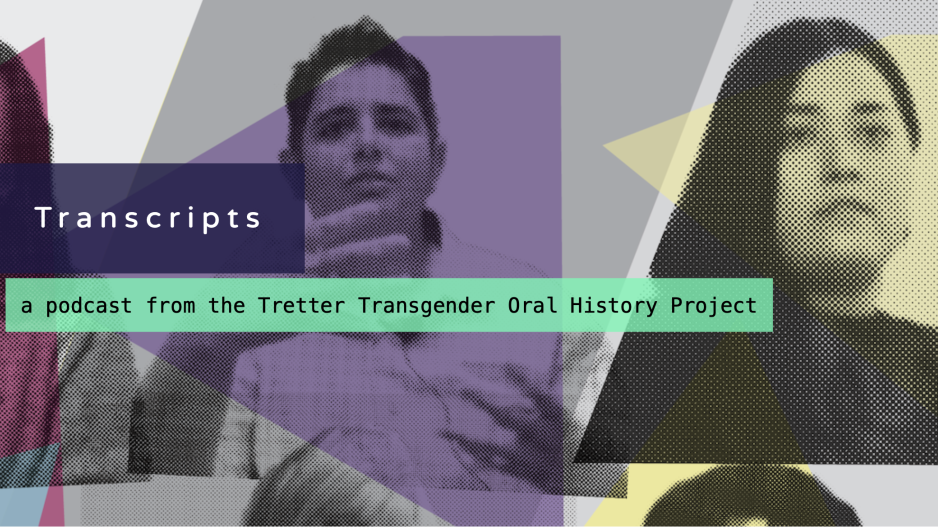
Cassius Adair is the lead producer of Transcripts, a podcast that documents the lives of transgender activists.
You're working on a book called "The Transgender Internet." Could you share some information about this work, the questions that led you to this book-length project?
The book began as an attempt to take seriously a few offhand in-jokes that I'd seen floating around in trans communities. One was that all white trans women secretly know computer programming. Another was that trans people invented the internet. These aren't demographic truths, of course; they're meant to communicate a sort of subcultural logic, a story that trans people tell ourselves about who we are. There are a few intriguing things about these stories, about the link between trans people, especially white trans women, and the internet. One is that, in the early 1990s, cis people made a lot of the same assumptions about trans people being intimately linked to technology; they just expressed these links according to transphobic scripts, such as the assumption that "women" in online spaces were all actually predatory men.
Another interesting thing is that there are, in the historical record, a number of trans technological innovators, many of whom worked for surprisingly conservative technological outlets at the same time when many LGBTQ people were joining left-leaning cultural and political movements. This has led me to deeply interrogate how whiteness, institutional capital, and access to information technology have shaped the ways that the transgender movement has evolved, especially with respect to the hegemony of whiteness and Western gender logics.
Related Articles
The Place Where Video Games, Gender, and Sexuality Meet: An Interview with New Faculty Member Whitney Pow
Whitney Pow is a media studies scholar whose research focuses on queer and trans histories of video games, software, and computational media. We spoke to them about their scholarship and art.
Making Media Accessible to the Deaf and Hard of Hearing: an Interview with Destiny Lopez
In award-winning research, master's candidate Destiny Lopez proposes ways to make media accessible to the deaf and hard of hearing.
The Future of Work: An Interview with New Faculty Member Mario Khreiche
An interview with Mario Khreiche, visiting assistant professor, whose research focuses on the ways that automation technologies change the nature, environments, and experiences of work.

